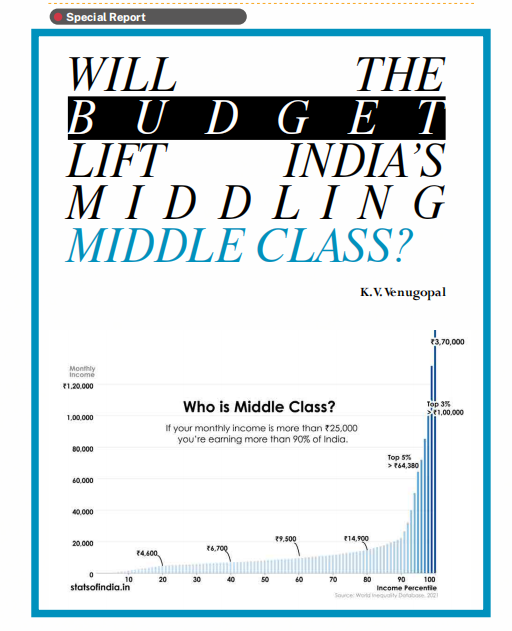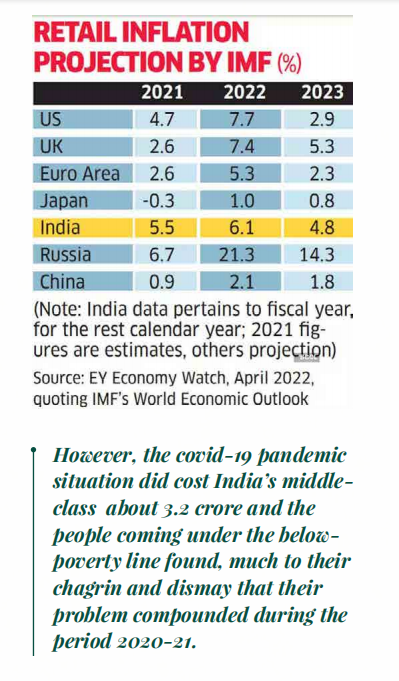
The Union Budget is round the corner. The middle class people are obviously sandwiched in the middle between the elite and poor and downtrodden people, similar to the plight of the middle-level manager, who is expected to be accountable to his superior, as well as getting the work done from his subordinates with proven leadership quality. Hence, it was not surprising when the Finance Minister, Nirmala Sitharaman revealed that she is from the middle class, and hence, has no hesitation in identifying with them.
In her fifth budget speech, Ms Sitharaman is expected to gladden the hearts of the middle class people with a disclosure that her government had not levied new taxes on them. As a matter of fact, the finance minister would be emboldened to prioritise urban infrastructure, including metro projects. Considering India’s narrow income tax base, the expectations and anxieties of the middle class often come into focus ahead of the budget. In a separate study on the middle class, a section of economists attempted to gauge their size by asking them to identify the positive or negative impact they encountered after every budget.
It is pertinent to note that almost half of Indian people claim that they belong to the middle class section, a phenomenon that is sharper in urban areas. It would not be out of the way to state that poor urban governance architecture not only limits the impact this class can have on politics, but also makes it tougher for the people to cross the Rs five-lakh income threshold. There are no two opinions that the middle class, which benefited to a great extent from liberalisation, needs to grow at a rapid stride. However, unfortunately, their needs were not taken care of in a proper perspective.
Some expert academicians asserted that the middle class should be looked at as the golden eagle, but the moot point, however is, whether India’s growing middle class is an engine of growth or a wheel with loose set-up? Are they asked to be involved in social and economic progress like freedom of press, education, social security, ownership and gender equality?
There is no iota of doubt that a huge shift towards a middle class society is on the progress, as the data indicates that they played a pivotal role for development of the nation in almost all professions. However, some political commentators view that an increasing proportion of the middle class rely on private provision of basic services, such as transport, healthcare and education. A well-known economist Devesh Kapur avers that it will have a demoralising effect, as a large number of the middle class people were not inclined to be bracketed under income-tax in the past.
To read the further articles please get your copy of Eastern Panorama February issue or mail to contact.easternpanorama@gmail.com



